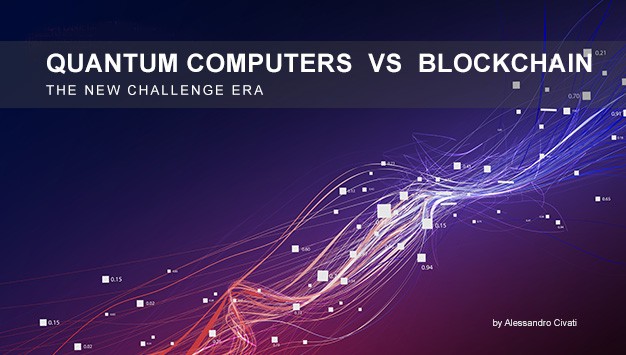Blockchain technology has revolutionized Quantum Computing digital transactions by offering decentralization, transparency, and security. However, a looming technological breakthrough—quantum computing—poses a potential threat to blockchain’s cryptographic security. As researchers make strides in developing powerful quantum computers, concerns grow over whether blockchain systems can withstand their immense processing power. This article explores the battle between quantum computing and blockchain, analyzing their strengths, weaknesses, and potential future coexistence.
What Is Blockchain?
Blockchain is a decentralized ledger technology that records transactions in a secure and immutable way. It relies on cryptographic principles to ensure data integrity and protect against fraud. Key features of blockchain include:
- Decentralization – No single entity controls the network.
- Transparency – Transactions are publicly verifiable.
- Immutability – Data cannot be altered once recorded.
- Security – Uses cryptographic hashing and digital signatures to safeguard transactions.
Blockchain underpins cryptocurrencies like Bitcoin (BTC) and Ethereum (ETH) and has applications in finance, healthcare, supply chains, and more.
What Is Quantum Computing?
Quantum computing is a cutting-edge field that leverages the principles of quantum mechanics to perform calculations at unprecedented speeds. Unlike classical computers that use binary bits (0s and 1s), quantum computers use qubits, which can exist in multiple states simultaneously (superposition). This allows them to solve complex problems exponentially faster than traditional computers.
Key features of quantum computing include:
- Superposition – Qubits can represent multiple values at once.
- Entanglement – Qubits can be interconnected, enabling faster computations.
- Quantum Speedup – Potentially solves problems in minutes that classical computers would take thousands of years to process.
How Quantum Computing Threatens Blockchain Security
While blockchain’s cryptographic foundations are robust against current computing threats, quantum computers could potentially break these defenses. Here’s how:

1. Breaking Cryptographic Algorithms
Most blockchain networks rely on Elliptic Curve Digital Signature Algorithm (ECDSA) for securing transactions. Quantum computers could use Shor’s Algorithm to break ECDSA encryption, allowing hackers to forge digital signatures and steal assets.
2. Hacking Private Keys
Quantum computers could reverse-engineer private keys from public addresses, enabling unauthorized access to wallets and transactions. This poses a serious threat to Bitcoin, Ethereum, and other blockchain networks.
3. Weakening Hash Functions
Blockchain relies on hash functions (e.g., SHA-256 for Bitcoin) to secure data. Quantum computers could use Grover’s Algorithm to reduce the time needed to find a cryptographic hash collision, making blockchain systems more vulnerable.
Can Blockchain Adapt to the Quantum Era?
Despite these threats, blockchain is not entirely defenseless. Researchers and developers are exploring quantum-resistant blockchain solutions, including:
1. Post-Quantum Cryptography (PQC)
New cryptographic algorithms, such as lattice-based cryptography, hash-based signatures, and multivariate cryptographic schemes, are being developed to withstand quantum attacks. Projects like Ethereum 2.0 and Bitcoin developers are researching PQC integration.
2. Quantum-Secure Blockchains
Some blockchain projects are already developing quantum-resistant frameworks. For example:
- IOTA uses Winternitz One-Time Signatures (WOTS) to enhance security.
- Quantum-resistant blockchains like QANplatform are designing infrastructures that can withstand quantum attacks.
3. Hybrid Cryptographic Models
A combination of classical and quantum-resistant cryptography may provide a transitional solution until fully quantum-proof blockchain networks are developed.
The Potential Coexistence of Quantum Computing and Blockchain
While quantum computing poses risks to blockchain security, it also presents potential advantages:
1. Faster Transaction Processing
Quantum computing could enhance blockchain scalability by optimizing consensus mechanisms like Proof-of-Work (PoW) and Proof-of-Stake (PoS), leading to faster transaction verification.
2. Advanced Smart Contracts
Quantum-enhanced AI could enable self-improving smart contracts that can adapt to changing environments and execute more complex transactions efficiently.
3. Improved Blockchain Encryption
Quantum cryptography, such as Quantum Key Distribution (QKD), could reinforce blockchain security, making it virtually unhackable.

Conclusion: The Ongoing Battle Between Quantum Computing and Blockchain
Quantum computing and blockchain are two revolutionary technologies with immense potential. While quantum computers pose a serious threat to current blockchain security, proactive developments in quantum-resistant cryptography and hybrid security models could help blockchain networks adapt to the quantum age. Instead of seeing quantum computing as an enemy, the blockchain industry must leverage quantum advancements to fortify digital security.
As research progresses, we will likely see the emergence of a quantum-secure blockchain era, where both technologies coexist to create a more secure and efficient digital ecosystem.
